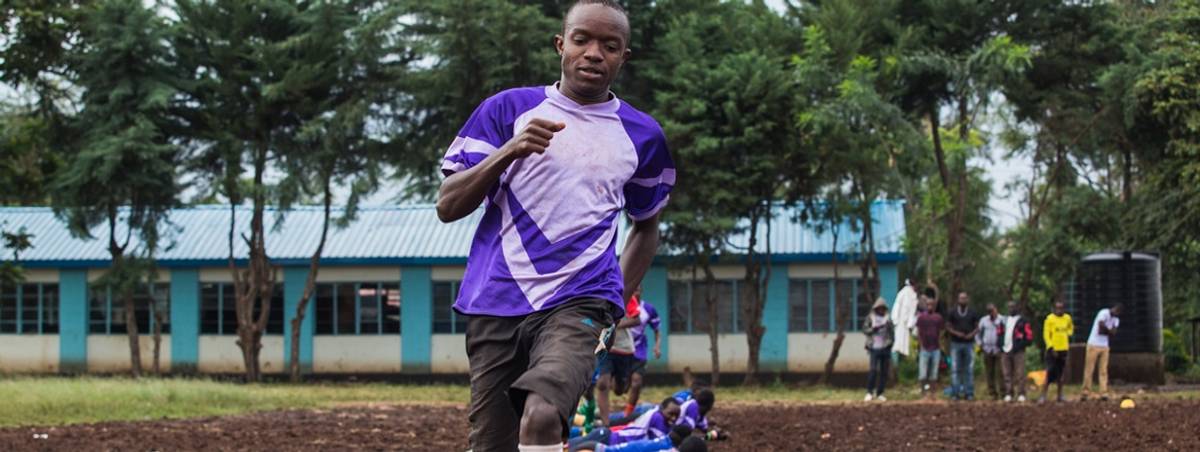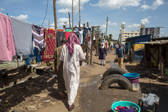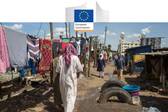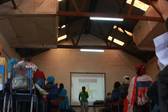Strengthening Resilience to Violent Extremism (STRIVE) Horn of Africa
This RUSI-implemented pilot programme (2014-2017) was the first dedicated effort by the European Union to implement a countering violent extremism project outside its borders.
RUSI’s STRIVE Horn of Africa (HoA), implemented out of the RUSI Nairobi office, was a €2-million pilot programme that sought to develop a set of best practices for implementing and monitoring P/CVE programming in the region, building the EU’s internal knowledge and capacities, and contributing towards global P/CVE strategy. In designing and implementing the activities within each result area, there was an emphasis on research, monitoring, and evaluation, to extract lessons on an ongoing basis.
STRIVE followed a pilot approach to CVE activities where ‘failure was an option’ in testing assumptions associated with radicalisation and recruitment.
Acknowledging the complex nature of radicalisation and recruitment to violent extremist groups, the project adopted an initial working definition that conceptualised the phenomenon as ‘a process by which individuals are introduced to an overtly ideological message and belief system that encourages movement from mainstream beliefs towards extremist views and the promotion of and use of violence’.
The recognition of a ‘process’ emphasised the need for a multifaceted, collaborative approach, integrating different actors to engage at different stages (while appreciating that radicalisation is non-linear).
Project outputs
The activities under STRIVE HoA were wide-ranging. Each of the result areas consisted of three phases: a six-month research and assessment phase, a 24-month project implementation phase and a final six-month evaluation phase. Under these areas, a limited number of actions were implemented to create a demonstrable impact on strengthening resilience against violent extremism. These pilots sought to both identify best practice in efforts to counter violent extremism and to strengthen the evidence base around CVE programming. In designing and implementing the activities within each result area, there was an emphasis on research, monitoring and evaluation to extract lessons on an ongoing basis.
The result areas included:
- Building the regional capacity of security sector and law enforcement authorities to engage with civil society in fighting violent extremism (initially intended to cover Ethiopia, Kenya and Somalia).
- Strengthening the capacity of women’s organisations in Puntland and Somaliland to fight violent extremism.
- Increasing understanding of the challenges faced by EU-born Somali youth in Somaliland.
- Increasing understanding of the drivers of radicalisation among youth in Kenya.
- A fifth area that was subsequently included focused on preventive communications.
Defining Violent Extremism
Gender

This article argues that a gender-sensitive approach is needed for effective countering violent extremism programming and counterterrorism policy, therefore is needed to create a more secure world for all individuals.
Design, Monitoring and Evaluation

Project impact
An independent evaluation assessed the extent to which the activities of STRIVE HoA have contributed to its overall objectives. The evaluation found that the pilot programme activities achieved a number of positive results, and that STRIVE HoA has made significant contributions to programmatic learning and to increasing the EU’s knowledge about P/CVE and radicalisation – in the Horn of Africa region as well as thematically. The evaluation concluded with a number of forward-looking recommendations concerning the design and delivery of CVE projects in more general terms, the EU's engagement with P/CVE, and the thematic result areas under STRIVE HoA.
The successes and learnings from the programme were drawn upon by RUSI to develop and deliver a second phase of programming: STRIVE II Kenya.
Related project
Funding
Funded by the European Union
Strengthening Resilience to Violence and Extremism: Horn of Africa project was developed with funding from the EU.
Find out more






